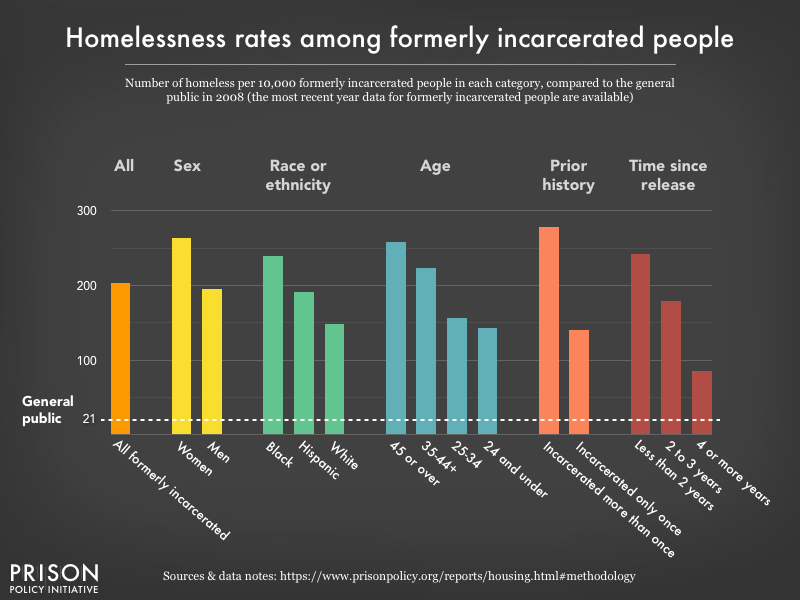New report, Nowhere to Go, breaks down the housing crisis among formerly incarcerated people
A stable home is all but required for successful reentry. How many formerly incarcerated people are locked out of housing?
August 14, 2018
Easthampton, Mass. – People who have been to prison are 10 times more likely to be homeless than the general public, according to a new report. In Nowhere to Go, the Prison Policy Initiative provides the first national snapshot of homelessness among formerly incarcerated people, which it calls a “little-discussed housing and public safety crisis.”
The report explains how people returning from prison – who need stable homes to overcome the difficulties of reentry – are nevertheless excluded from housing:
- Over 2% of formerly incarcerated people are homeless, and nearly twice as many are living in precarious housing situations close to homelessness;
- The risk of homelessness increases the more times one has been to prison – an irony considering that police departments regularly arrest and jail the homeless;
- People recently released from prison are most at risk of being homeless, with rates nearly 12 times higher than the general public;
- Women – and Black women in particular – are especially at risk.
Report author Lucius Couloute explains that landlords and public housing authorities “have wide discretion to punish people with criminal records long after their sentences are over.” Couloute lays out policy solutions to what he calls a “fixable” problem, including:
- Regulating competitive housing markets to prevent blanket discrimination;
- Creating statewide reentry systems to help recently-released Americans find homes;
- Ending the criminalization of homelessness in U.S. cities;
- Expanding social services for all homeless people, with a “Housing First” approach.
Today’s report is the second of three to be released by the Prison Policy Initiative this summer, focusing on the struggles of formerly incarcerated people to access employment, housing, and education. Utilizing data from a little-known and little-used government survey, Couloute and other analysts can describe these problems with unprecedented clarity. In these reports, the Prison Policy Initiative recommends reforms to ensure that formerly incarcerated people – already punished by a harsh justice system – are no longer punished for life by an unforgiving economy.




